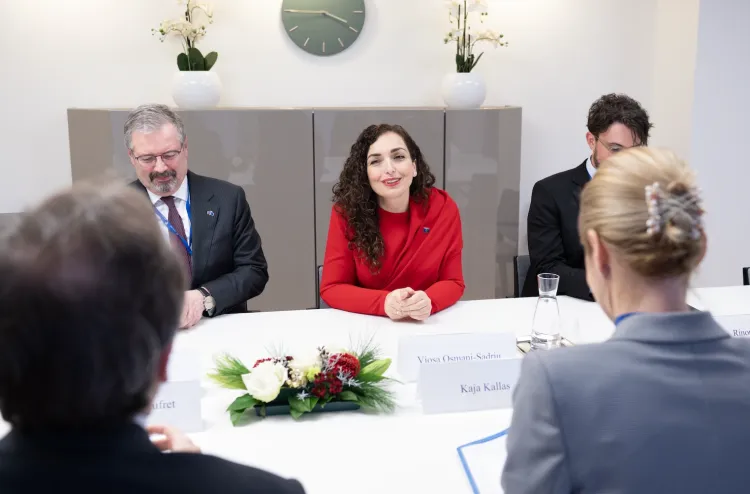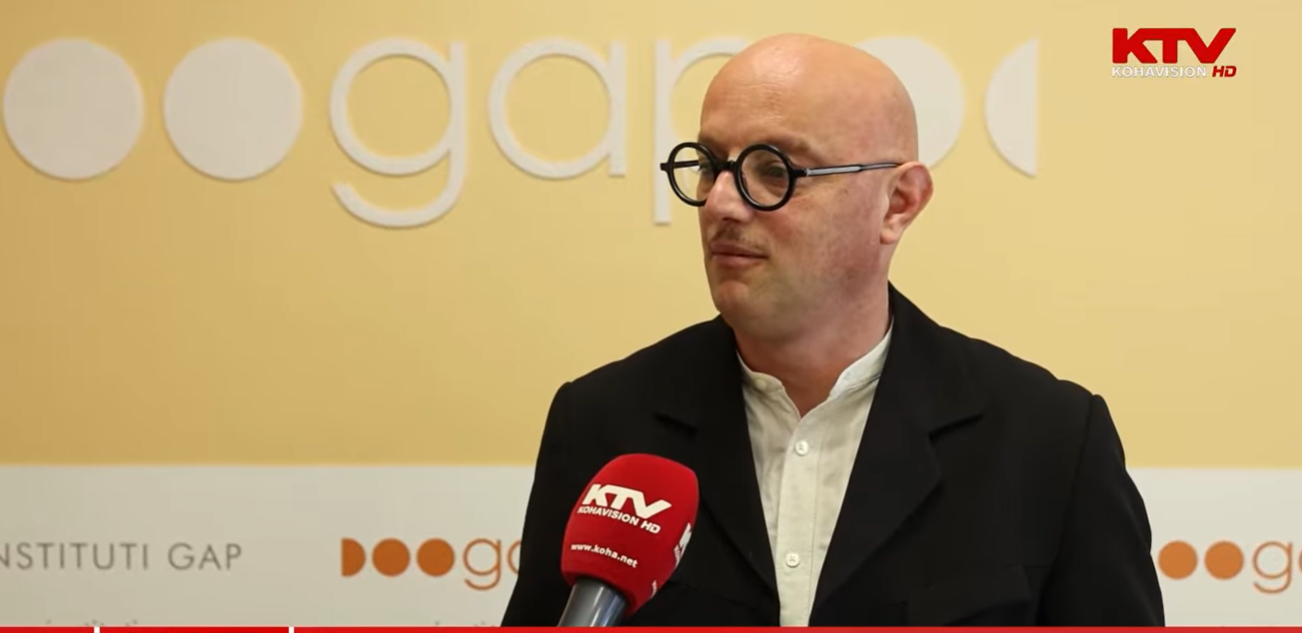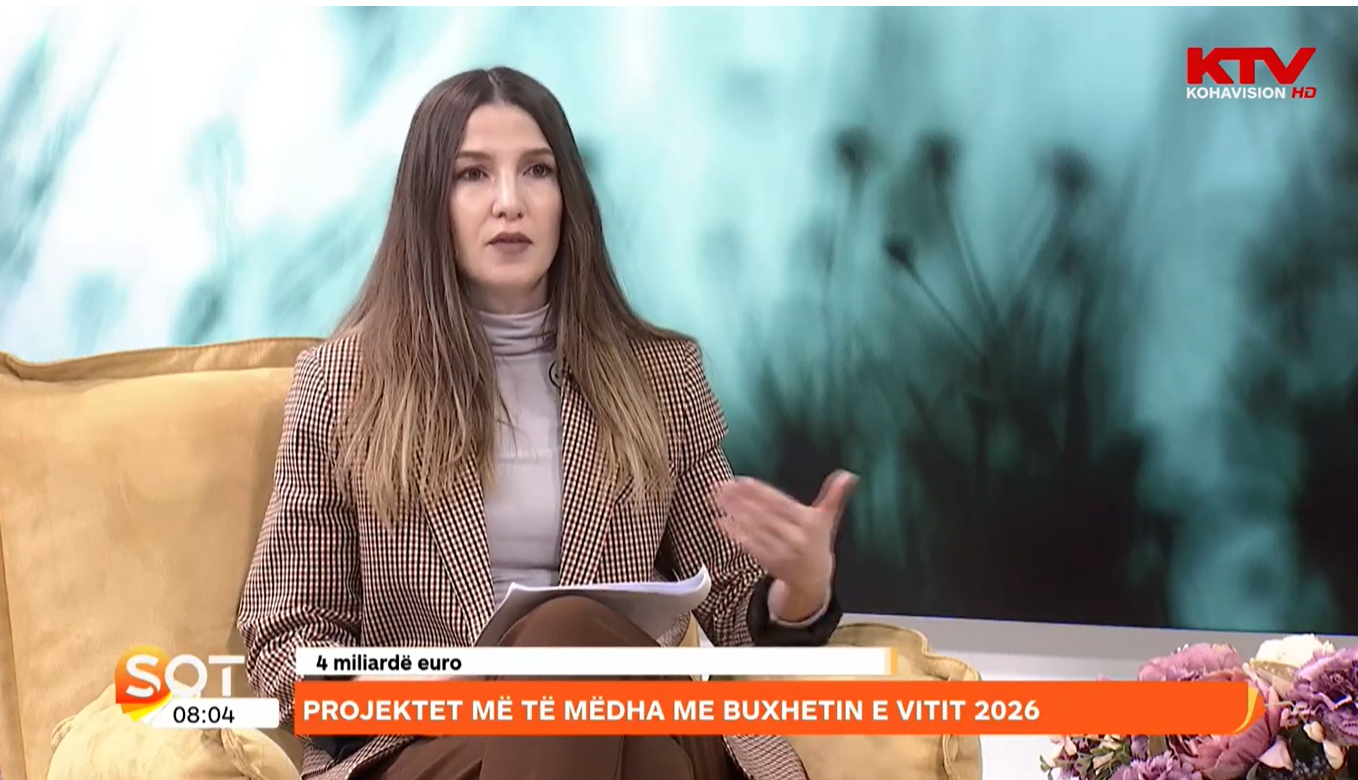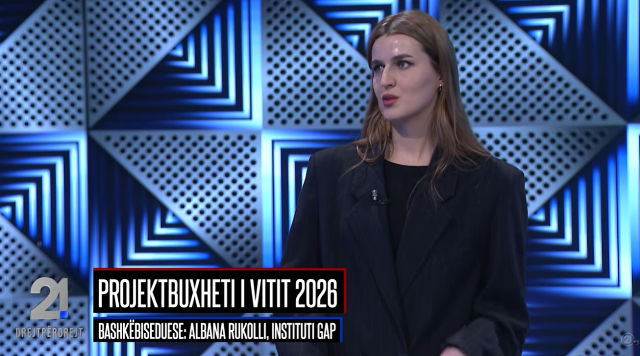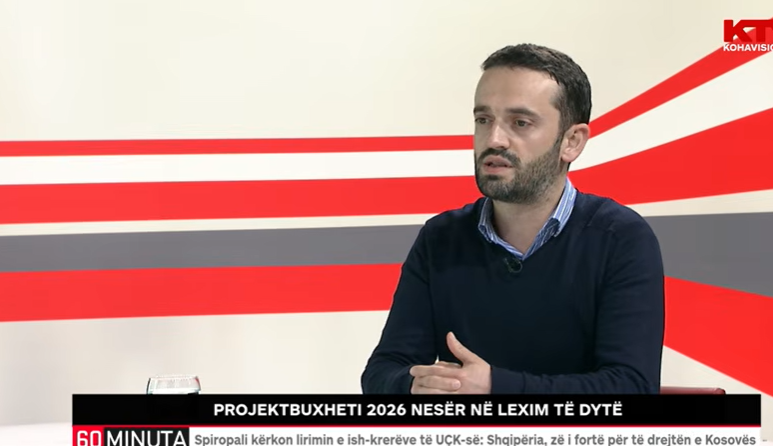Regional Conference: “Promoting the Green Industrial Future of the Western Balkans”
06/11/2025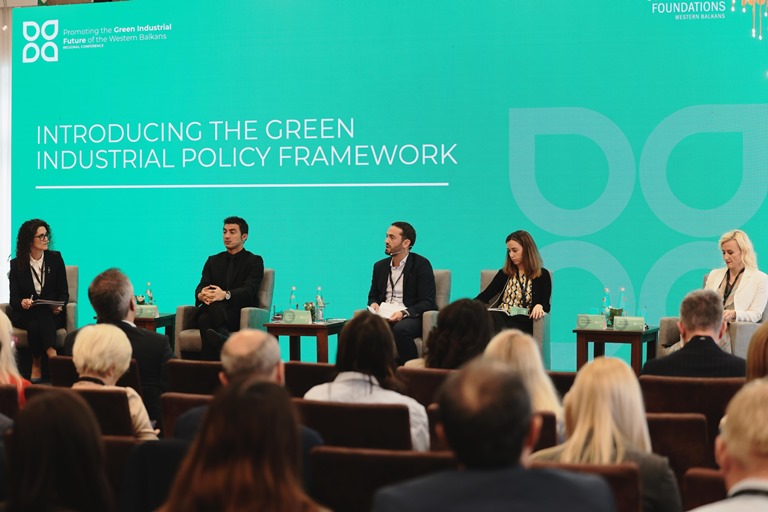
On 3 November 2025, in Tirana, GAP Institute, as part of the regional conference jointly organized with Open Society Foundations – Western Balkans (OSF-WB), titled “Promoting the Green Industrial Future of the Western Balkans”, presented and published the report “A Framework for Green Industrial Policies in the Western Balkans.”
The report proposes green industrial policies aimed at aligning economic transformation in Western Balkan countries with decarbonization objectives, so that our countries become more competitive, enjoy a cleaner environment, create decent jobs, and attract foreign investment.
The report recommends the creation of incentive-based financial instruments for enterprises investing in clean technologies and innovation, the adaptation of green public procurement as a mechanism to steer the market toward green technologies, and sustainable investments in upskilling and reskilling the workforce for growing sectors. A key element is also the rapid implementation of a national carbon pricing mechanism, harmonized with European Union requirements under the Carbon Border Adjustment Mechanism (CBAM). To ensure that the green transition is sustainable and economically viable, the report emphasizes the importance of developing modern energy infrastructure, transitioning toward a circular economy, and fostering regional cooperation and coordination in renewable energy production and trading.
Through four discussion panels involving regional experts, policy analysts, university professors, and civil society actors, the conference explored opportunities for a green transition in the Western Balkans and the benefits that a strategic, fair, and collaborative transformation across the six countries of the region could bring.
- The first panel presented and discussed green industrial policies and their role for the Western Balkans.
- The second panel focused on reclaiming value from industrial and abandoned mining waste, emphasizing that the recovery of critical raw materials (CRMs), such as valuable metals and minerals, can turn the region’s industrial legacy into an economic and developmental advantage.
- The third panel addressed the role of accelerated zones and integrated “one-stop shop” mechanisms to facilitate investments in renewable energy.
- The fourth panel highlighted the importance of empowering women in the green transition as a core component for sustainable and inclusive development in the Western Balkans.
Click here to read the full report.




